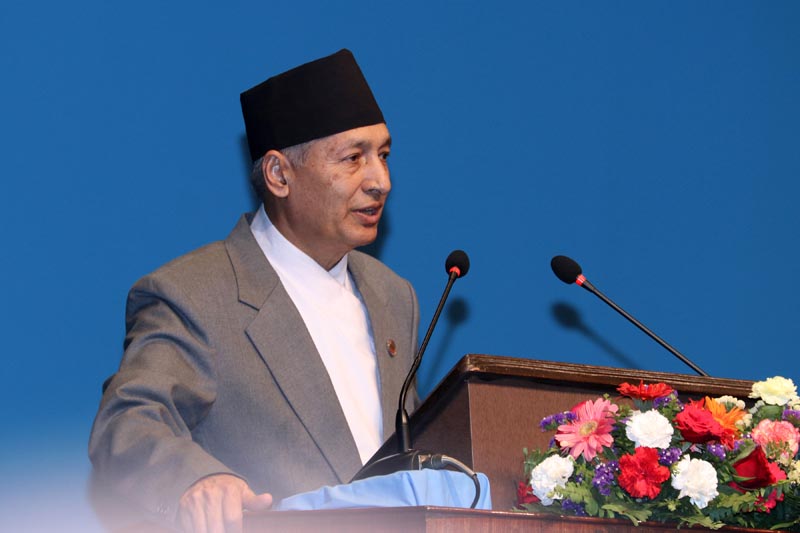No silver lining for private sector
Kathmandu, May 29
The budget for the next fiscal year is a mixed bag of populist programmes and public infrastructure projects without much for the private sector.
Finance Minister Yubaraj Khatiwada delivered the budget speech in Parliament today for over two hours giving top priority to the education sector, as against work and employment a year ago.
In an era of technological advances, where today’s skills are unlikely to match the jobs of tomorrow due to automation and emergence of artificial intelligence, the emphasis laid on education sector is commendable. But programmes announced by the finance minister for the sector are not very new or aimed at enhancing quality of education to produce talented youngsters.
This type of gap is evident in programmes announced for almost every sector, which makes next fiscal year’s budget a half-baked development plan — an error which could have been avoided by a stable government with two-thirds majority.
Just take a look at programmes designed for the tourism sector. The finance minister has acknowledged tourism as a sector that holds immense potential for job creation, income redistribution and sustainable economic development. But one of the constraints facing the tourism sector is infrastructure, especially quality hotels that can cater to high-spending tourists. Yet the budget has not spoken about incentives that can be extended to the private sector to build this critical infrastructure.
Another sector that lacks proper planning is energy. The budget states that an additional 1,000 megawatts of energy will be generated in the next fiscal year alone, doubling the installed capacity of energy projects to over 2,000 MW. But the budget is eerily silent on utilisation of additional quantum of energy. Had the finance minister announced incentives for the private sector to set up, say, manufacturing units, the surplus energy could have been put to proper use, helping the country create jobs and expand economic output.
The finance minister, at the outset of his budget speech, had said he would mobilise the private sector as well to meet the budgetary objectives so that the country could raise per capita income, create jobs and accumulate capital. But he has failed to walk the talk. This comes at a time when private sector’s share in gross fixed capital formation — which includes purchases of physical structures, plants, machinery and equipment — has fallen to 78 per cent from 81.5 per cent in 2014-15.
Instead of focusing on raising the participation of the private sector — which is much more efficient — in economic activities, the finance minister has tried to promote pork barrel politics by raising the grant for each electoral constituency to Rs 60 million from the existing Rs 40 million. This will create a financial burden of Rs 9.9 billion on taxpayers. But past experience shows this spending will have very little development impact because lawmakers use the money to build small projects, serve their vested interest or secure vote banks.
One of the reasons why Nepal has not been able to escape the low-income trap is reluctance of the private sector to invest because of widespread corruption, bureaucratic red tape and policy instability. Another problem is infrastructure deficit, which the government has tried to address by allocating Rs 163.5 billion for roads, railways and waterway transport projects in the budget.
This public investment will enhance the economy’s productivity. But to truly benefit from these infrastructure projects, the private sector must grow because public investment drive has to be supported by industrialisation process for which private investment is required. Otherwise, how can large number of jobs be created or living standard go up?
However, it was surprising the budget contained only four points for ‘private investment promotion’ and most of the programmes were not new.






